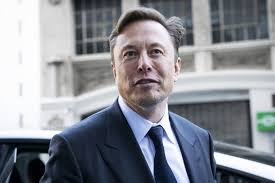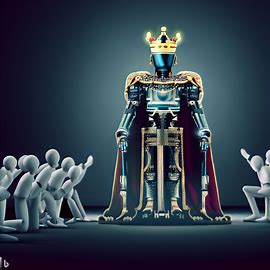Silicon Valley, a place known for its innovation and technological advancements, has recently been struck by a sense of apprehension over the rapid development and deployment of artificial intelligence (AI) systems. However, this fear is not necessarily rooted in the potential benefits or dangers that AI presents, but rather in a hidden agenda of predatory capitalism that plagues the technology industry.
The insatiable thirst for profits and power by tech companies has led to a worrisome reality where the development of AI is more focused on exploiting consumer data for financial gain than solving real-world problems.
As we ponder whether we should be afraid of the growth of AI, it is important to acknowledge the underlying motives behind Silicon Valley’s fear and question whether the current state of affairs is sustainable for the future of technology and society.
Are they really concerned about the risks of AI, or are they trying to catch up to GPT4?
The recent open letter calling for a six-month pause on the development of AI systems more powerful than GPT-4 has raised some eyebrows in the tech industry. While the letter warns of the risks that advanced AI systems could pose to society and humanity, some wonder if there is an ulterior motive behind the petition.
It’s no secret that tech giants like Microsoft and Google have been racing to develop their own advanced AI systems, and the release of GPT-4 by OpenAI has only heightened that competition. Some speculate that by calling for a pause on AI development, these companies may be trying to buy themselves time to catch up to their competitors.
On the other hand, it’s important to note that many of the signatories of the letter are respected experts in the field of AI research who have long been vocal about the need for responsible AI development. They argue that the rapid pace of AI development in recent years has outpaced our ability to understand and control these systems and that a temporary pause could allow for more thoughtful consideration of the potential risks and benefits.
Ultimately, it’s impossible to say for certain what motivates these tech giants and their supporters to call for a pause on AI development. However, it’s clear that the risks and benefits of advanced AI systems are a matter of great concern, and that the conversation around responsible AI development must continue.
Tech experts call for AI development 6 month pause.

Elon Musk, the CEO of Twitter, and Steve Wozniak, co-founder of Apple, are among the thousands who have endorsed an open letter urging a six-month halt on the development of artificial intelligence systems surpassing GPT-4.
Interestingly, even some researchers from companies developing their AI systems, such as Deepmind, a UK-based company owned by Alphabet, have signed the petition. Musk, who was a founder of OpenAI and supported its launch in 2017, has recently expressed concerns about its focus on new systems and profit rather than ethical considerations.
What the petition seeks to achieve
The petition highlights the risks posed by AI with “human-competitive intelligence,” including the spread of disinformation, job automation, and other catastrophic outcomes. It also cautions against an “out-of-control race” among AI labs to develop more powerful systems beyond human comprehension and control. The tech experts have urged AI labs to pause the training of such systems for at least six months or face government intervention. Some countries are already working on AI regulations to mitigate high-risk tools.
Who created the petition?
The nonprofit organization Future of Life Institute initiated the petition, which includes notable signatories like Yoshua Bengio, a Turing Award-winning AI pioneer, and prominent AI researchers such as Stuart Russell and Gary Marcus. Other signatories include Steve Wozniak, former U.S. presidential candidate Andrew Yang, and Rachel Bronson, the president of the Bulletin of the Atomic Scientists, a science-oriented advocacy group known for its stance against nuclear war that could potentially cause humanity’s demise.
Has OpenAI agreed to this petition?
The tech giants OpenAI, Microsoft, and Google did not respond to requests for comment on the matter. The letter has already received criticism from some who believe that it is vague and fails to acknowledge the regulatory issues at hand.
One expert, James Grimmelmann, a professor of digital and information law at Cornell University, has criticized Elon Musk for signing the letter, calling it “deeply hypocritical” due to Tesla’s past fights against accountability for the defective AI in its self-driving cars.
Should we be afraid of artificial intelligence?
Many people continue to feel anxious or fearful about the rapid development of AI, and with good reason. While the behavior of AI machines is not determined by their intellect but rather by their creators and the information they are programmed with, we are still at the mercy of large corporations and their profit-driven motives.
These companies have the power to shape the direction of AI development and its impact on society, and there is always a risk that their decisions may prioritize financial gain over the well-being of people and the planet. Therefore, it is important to remain vigilant and critical of the actions of these corporations, and to demand transparency and accountability in their AI development processes.
The potential risks of AI systems with human-competitive intelligence, as highlighted by the recent petition calling for a six-month pause on their development, are significant and cannot be ignored. As such, we should be cautious and aware of the implications of these fast-growing AI systems, and push for responsible and ethical development practices that prioritize the common good over corporate profit.




Leave a Reply